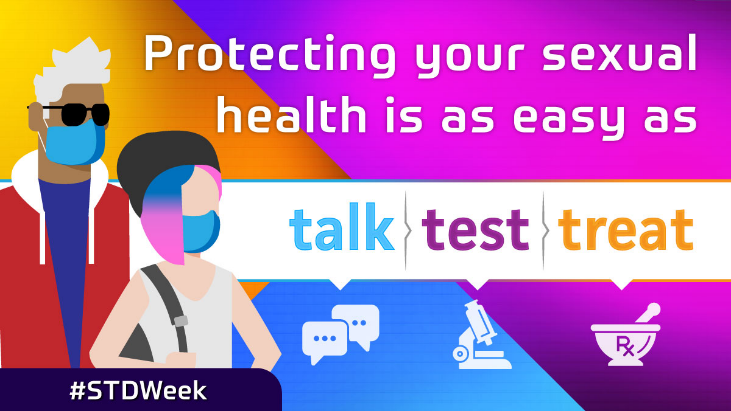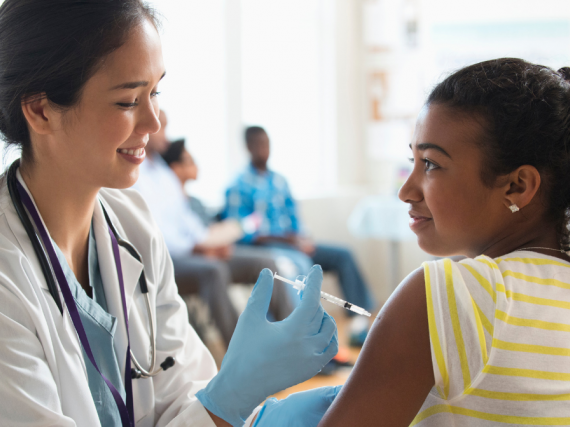Talk, Test, Treat
Sexually transmitted infections (STIs) and sexually transmitted diseases (STDs) are not talked about enough considering they affect millions of people each year. Most people probably had a high school health class that went over STIs and STDs and what to do to prevent them. Even so, there is often a stigma associated with STIs and STDs that prevents young people from asking questions and being open about their experiences or questions regarding STIs and STDs. Talking about STIs and STDs is necessary to raise awareness and help young people become more comfortable with topics related to their sexual health.
During STI awareness week, April 10-16, we are highlighting the importance of talking about STIs and what they mean. The Centers for Disease Control and Prevention (CDC) launched their Talk. Test. Treat. campaign for STD awareness week. The CDC’s campaign encourages people and health care providers to talk about STDs, to encourage people to get tested for STDs, and, if necessary, get treated. The campaign tries to break the stigma surrounding STD testing by reinforcing that STDs are preventable, treatable, and most are curable.
Talk. Test. Treat. provides information for both individuals and health care providers to better navigate conversations about sexual health. The campaign’s Talk component is similar to Power to Decide’s #TalkingIsPower effort that also highlights the importance of having conversations with young people about topics related to sexual health and education. The CDC campaign suggests people talk with both their partner(s) and health care providers. Normalizing conversations about sexual health is important, especially amongst teens who may be nervous to talk about these topics. For those who are concerned about how to bring up these conversations with their partner(s), the CDC shares conversation starters that can be used when discussing STIs and STDs. Building trust between providers and patients is also essential for people of all ages to be open about their experiences. STDs are very common and should be openly discussed with providers by anyone who is sexually active. Talking to a health care provider can also help folks learn about the different ways they can contract either an STD or STI, which will better protect everyone in the future.
Talk. Test. Treat also emphasizes the importance of being regularly tested if people are sexually active. Knowing what STDs to test for is important, and everyone who is sexually active should make sure to get tested regularly. The CDC explains that almost half of recorded STIs each year are among people age 15-24. Getting tested can help people receive treatment early on.
The CDC also shares a clinic finder which allows people to search for confidential testing clinics in their area in case they don’t feel comfortable visiting their regular health care provider for testing. For those who test positive, it’s vital to talk with a health care provider to get the necessary treatment as soon as possible. It is important to remember STDs are treatable and that it’s critical for anyone who tests positive to discuss their status with both their partner(s) as well as their provider.
Since STIs and STDs disproportionately impact young people, who may not be fully aware of the effects of infections, it is important to raise awareness and break the stigma by encouraging more people to talk about STIs and STDs. This STI Awareness Week we encourage everyone to have conversations with their health care provider and partner(s) and check their health by getting tested and treated if necessary.
Sitara Sayyed is the Public Policy Intern at Power to Decide where she assists the Public Policy team with federal policy issues. She attends University of Maryland where she studies Public Policy.



